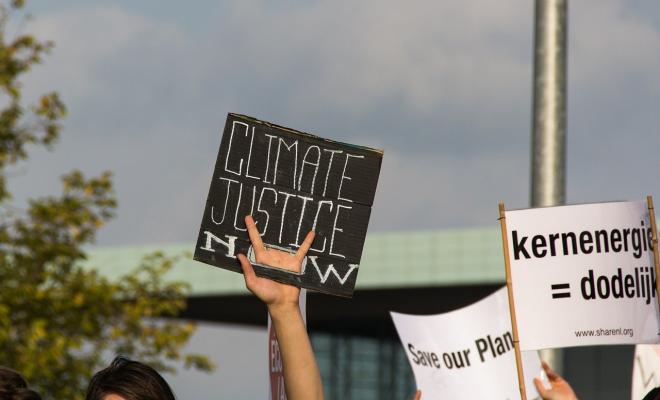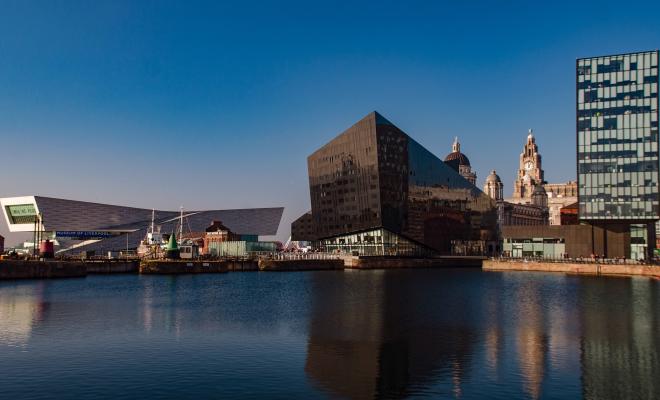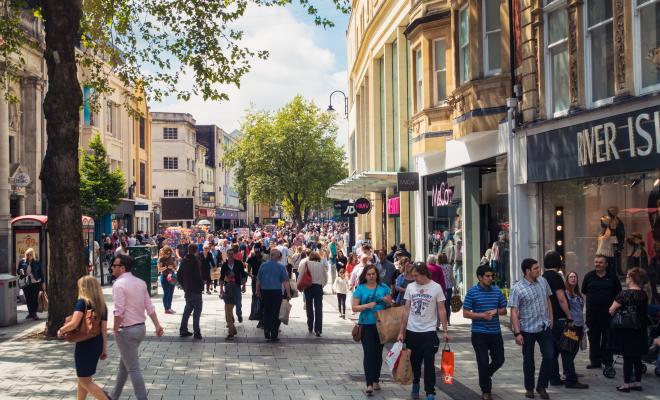20 Sep 2024
How is Action 50 tackling the climate crisis?
The cuts in carbon emissions that we need to make over the next decade can’t be delivered without action by local authorities. But in order to scale up action, councils need more long-term resourcing and the right powers to tackle climate change.
That's why Kingston Council in south-west London is one of 130 authorities to have signed the "Blueprint for accelerating climate action and a green recovery at the local level". The plan, produced by Friends of the Earth, local government associations and others, aims to give councils more resources, more regulatory powers and more financing powers.
The Blueprint calls for a joint local and central government task force on climate change, supported by other stakeholders, to take policy proposals forward. It also identifies 5 key priorities for government:
- Investing in low-carbon and resilient infrastructure.
- Supporting reskilling, retraining and research for a net zero economy.
- Upgrading homes and buildings.
- Making it easy for people to walk, cycle or use public transport and to work remotely or flexibly.
- Accelerating tree planting, peatland restoration, the creation of green spaces and other green infrastructure.
Kingston Council signed up to the Blueprint in November 2020. The council already plays an active role in lobbying both national and regional government on environmental issues, for example:
- The council has raised concerns about proposed changes to planning regulation.
- The council has also raised concerns about the expansion of Heathrow and Gatwick Airports, and on waste.
- At the regional level, the council has lobbied to get more clean buses in the area, and funding for active travel.
Signing up to the Blueprint has amplified the council’s voice and helped it call for fundamental reform and backing from the government to take more effective climate action.
What impact has the Blueprint had?
The government is engaging with the Blueprint. The coalition behind it has run a series of workshops with government policymakers on different climate action themes such as funding, retrofitting, planning, waste and transport, bringing in voices from councils such as Kingston to explain the barriers to delivering their Climate Action Plans.
The Blueprint coalition has been consulted by the Climate Change Committee and the National Audit Office ahead of their influential reports on local government climate action. The essential nature of place-based local action has been acknowledged by both, and more recently by former Conservative MP Chris Skidmore’s “Mission Zero” net zero review.
In 2023, ahead of the 2024 general election, the Blueprint coalition published its manifesto asks, and laid out clearly the commitments all parties must make to supporting local government if the UK is to decarbonise rapidly. The asks included:
- Recognition of the need for a place-based approach with adequate funding and support.
- Commitment to genuine partnership with local authority leaders through a more effective Local Net Zero Forum.
- Commitment to reform and devolve funding streams, and increase flexibility, to enable local authorities to act at the scale and pace required.
- All future devolution deals should include ambitious plans for place-based actions to reduce carbon emissions, adapt to the impacts of climate change, and restore nature.
“There is plenty of regional, local and community will to act on net zero, but too often government gets in the way. The UK government must provide central leadership on net zero, but it must also empower people and places to deliver. Place-based action on net zero will not only lead to more local support but can deliver better economic outcomes as well.”
Mission Zero: Independent Review
of Net Zero
What enabled Kingston to sign up?
Kingston Council declared a climate emergency in June 2019, with unanimous cross-party support, building on overwhelming support for climate action from councillors and officers.
The authority was alerted to the Blueprint by a local resident involved in its creation. Kingston has many residents who either work in the environmental sector or are part of community environmental groups, which flag initiatives such as the Blueprint.
The portfolio holder for Environment and Sustainable Transport at the time and the council’s Chief Executive backed the Blueprint plan because the council doesn’t have the powers or resources needed to reach its climate targets without help from the government.
London Councils, the local government association for London, plays an important role in representing the views of London boroughs such as Kingston to the government. London Council’s Climate Change lead officer has contributed to the Blueprint, ensuring it reflected the policy asks from local councils.
What resources were needed?
No funding was required for the council to support the Blueprint. Lobbying and responding to national consultations takes council officer and councillor time, but the Blueprint should help to reduce this time by lobbying on behalf of councils.
“Local authorities stand ready to do more to tackle the climate emergency, but often find themselves constrained by an over-centralised government. We must treat local councils as true partners in reaching net zero and provider them with the power and resources they need.”
Wera Hobhouse, Member of Parliament for Bath
Lessons from Kingston
It can be challenging for the council to keep up with the wide range of policy consultations and campaigns on climate issues and relate this to what's most important locally. Kingston found that maintaining good channels of communication with local community groups can help.
Useful information
Related projects
Over 130 councils have signed up to the Blueprint. You can find out more by watching this webinar.
Another authority that backs the Blueprint is Wiltshire County Council. Here’s what council leader Councillor Richard Clewer had to say:
“What we need is consistency, long-term funding – and it’s got to be cross-party, going beyond the political cycle. Lots of councils have changed hands and will do so in the time we need to decarbonise in; we’ve got to have all parties agreeing to those long-term policies.”
Friends of the Earth view
The more councils that sign up to the Blueprint, like Kingston upon Thames, the more influence the coalition will have to convince the UK government to provide the powers and resources that councils need to scale up action on climate.
Friends of the Earth is showcasing specific examples of good practice in tackling climate change, but that doesn’t mean we endorse everything that a council is doing.
This case study was produced by Ashden and Friends of the Earth. It was originally published in February 2022 and was last updated in April 2024. Any references to national policy in this case study relate to policy under the previous government and reflect the policy context in which the council was operating at the time.





